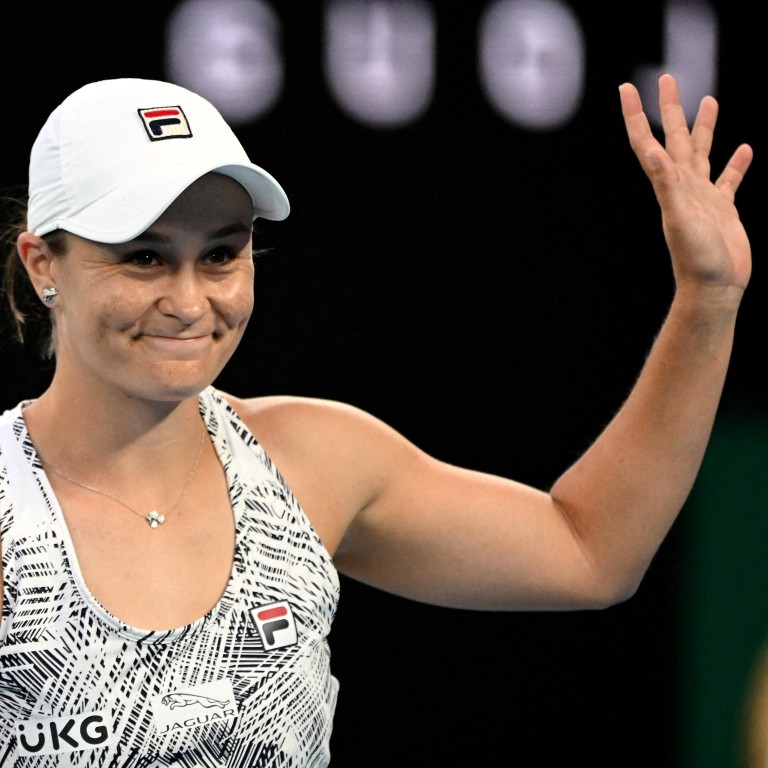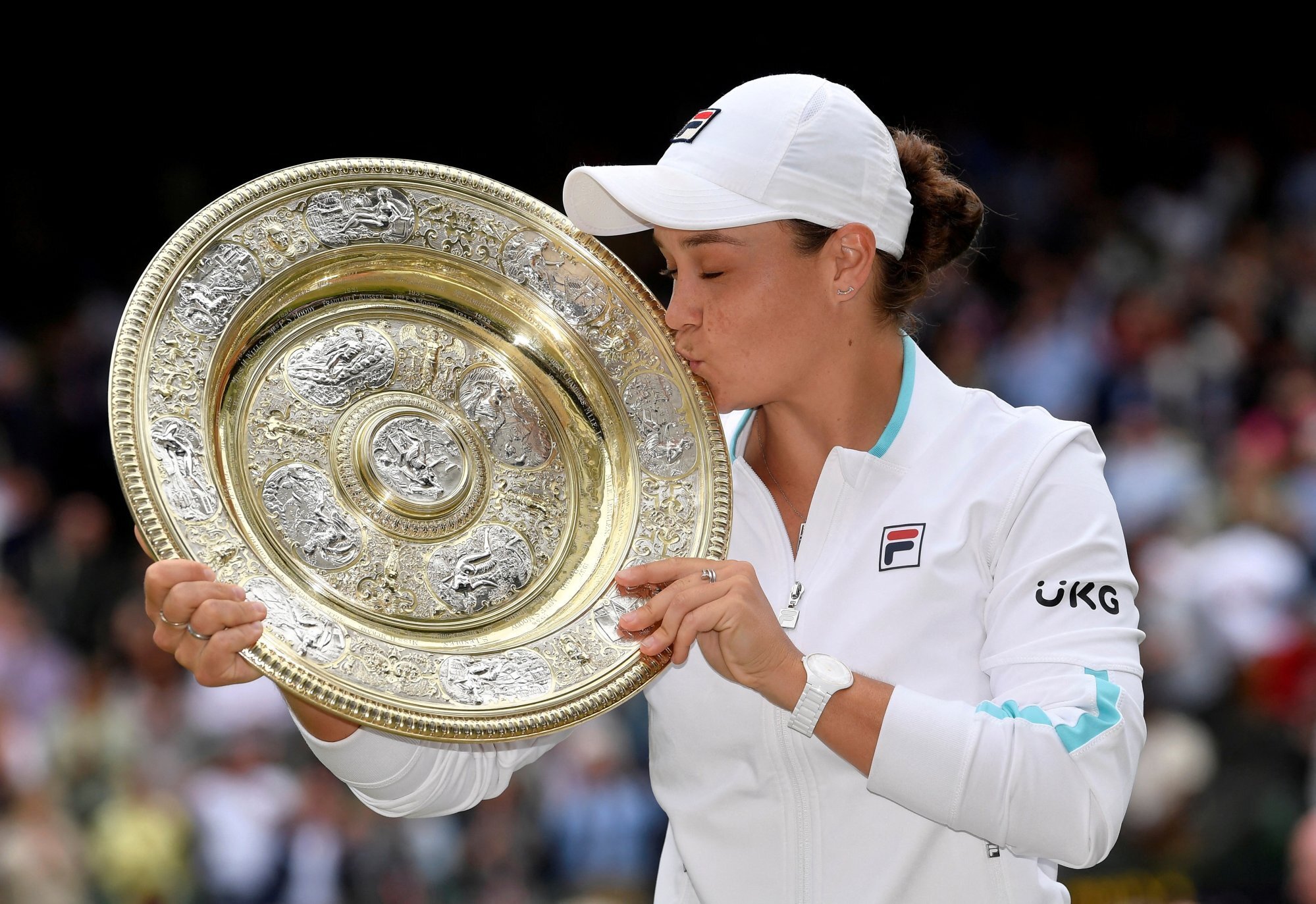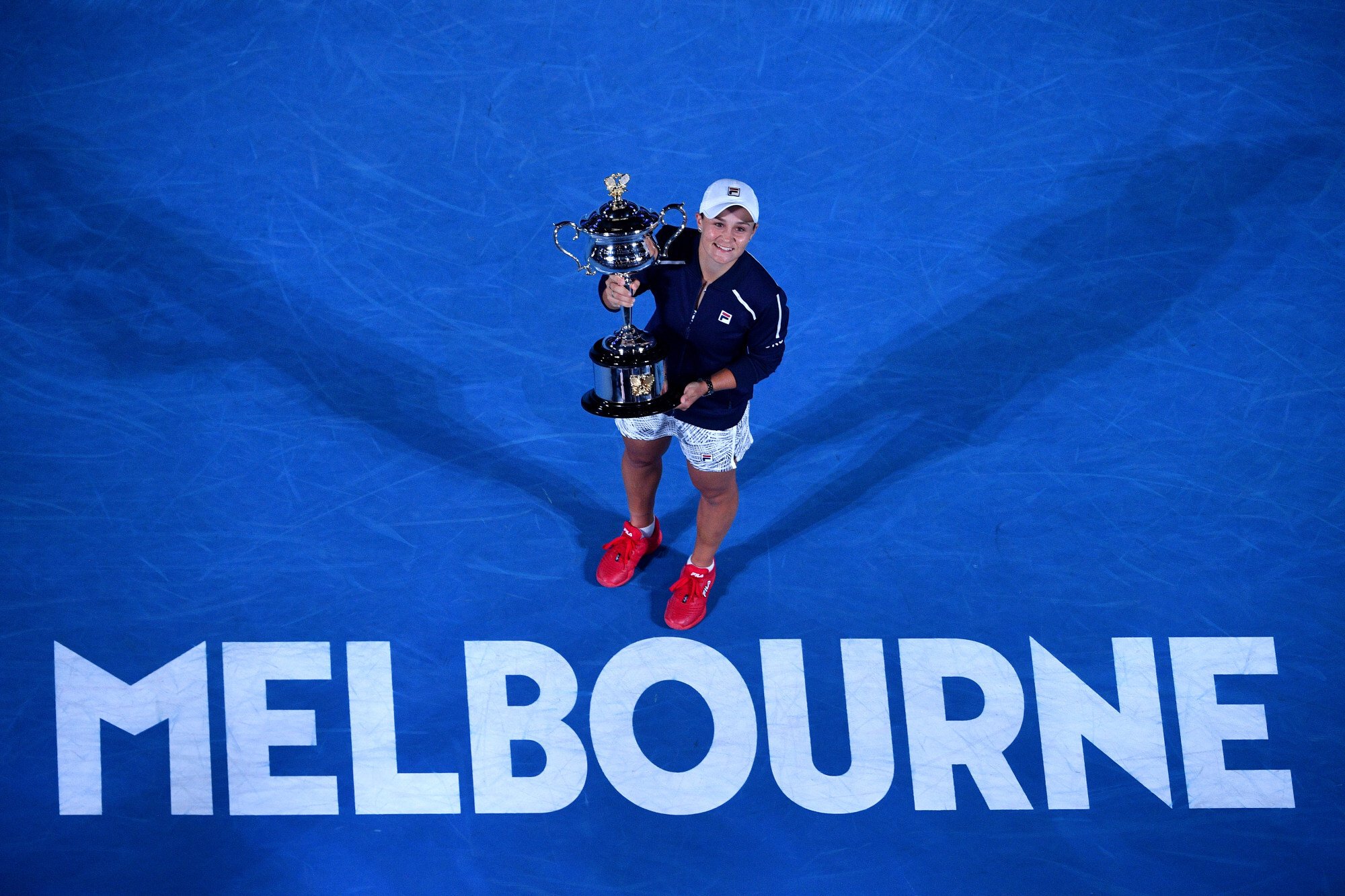
Bowing out a champion, Ash Barty leaves us wondering what might have been for career that had only just begun
- The Australian Open and Wimbledon champion could have dominated women’s tennis for years to come
- Instead she is exiting the game on her own terms, escaping the ravages of time that all of the best eventually succumb to
For all sportsmen and women, time remains the unconquerable obstacle. They play at its mercy and pray their bodies withstand its ravages. They live knowing with absolute certainty that it will, eventually, conquer them.
The list of possibilities that lay ahead of her would take even more. With her all-court game and proven success over all three surfaces, some boldly predicted that even Serena Williams, who has won 23 grand slams and is second only to the 24 won by Margaret Court, should start looking over her shoulder.
In January this year, Barty bulldozed her way to the Australian Open title- the first Australian to triumph at Melbourne Park in 44 years. She entered the tournament having ended the previous three years as world No 1. But despite this, Barty was not the main attraction.
Global attention was focused on Naomi Osaka and Emma Raducanu. Osaka’s struggle with mental difficulties and the ensuing discussion it generated within the tennis world was one of the leading sports stories of 2021, with Olympic and world champions joining in the fray.
Meanwhile, in Raducanu, the sport discovered its new darling. The unseeded and charismatic Brit glided across the courts of Flushing Meadows to a stunning US Open victory. Overnight, she became a fan favourite and even without any title wins since, she captures headlines in any tournament she plays in.
Ash Barty beats Danielle Collins to win Australian Open women’s singles title
Perhaps this shared attention helped Barty. In Melbourne, her steely calm showed as she took the title to win her first hard court major. With her 2019 title on the clay of Roland Garros and her success on the lawns of Wimbledon last year, Barty had now won a grand slam on each of the surfaces. At 25, she did so faster than Roger Federer or Novak Djokovic. It seemed inevitable that a US Open title and with it, a career grand slam, would follow.
But with her sudden announcement of retirement, the possibilities have ceased to be. Instead, we are left reflecting on a career that seems like it had just begun. Her decision will surely draw comparisons with Bjorn Borg – he too made a sudden jump into retirement at age 26. But the difference was, Borg had just lost to McEnroe and was out of sorts thereafter, spinning tales that he had lost interest in the sport. In Barty’s case, she was at the peak of her performance with no reason to stop.
Still, once the shock subsides, and the chatter shifts elsewhere, there will be much to admire about her decision. In a sporting world where only the champions are remembered, Barty has ensured she will be, whatever her reasons for this decision.

Perhaps it was just enough that she had achieved her childhood dream with victory at Wimbledon and at home. Fans and journalists thirst for more from their champions so the pressure on players to constantly deliver can be overwhelming. Achievements are best appreciated once the pressure lifts.
When Rafael Nadal fell to Robin Soderling at Roland Garros in 2009, his first defeat there after four straight titles, he said the loss finally allowed him to take a breath and look back on his success before that. Likewise, Barty can sit back and reflect on a truly remarkable career filled with memorable highs.
Barty’s decision provides a timely juxtaposition to the current state of the men’s tennis game. Federer, Nadal, Djokovic and Williams have fooled us that tennis greats are ageless- that winning grand slams in your 30s is the norm. There is no doubt that the mean lifespan of a tennis player is growing. But just because it can be longer, does it mean that it has to be? Injuries are the most common reason for ending a career prematurely.

Professional tennis is incredibly taxing, the body is punished while the mind can be worn down by expectation, isolation and more. When Nadal takes to the courts of Roland Garros in a couple of months, he will no doubt be the favourite even at age 36. Even as we cheer him on towards a record-extending 14th title, it would be timely to step back and consider how much he too has done on those hallowed clay courts, and beyond.
As Barty bids farewell to women’s tennis, the mantle of world No 1 now goes to the 20-year-old Iga Swiatek. The Pole might not have as a stellar a resume as Barty but she has time on her side. She burst onto the scene two years ago with a blitzing victory at the French Open. Since then, she has steadily solidified her reputation as a star of the women’s game, and two days ago won at Indian Wells.
There are many other players in the limelight, so Swiatek will not be alone. Raducanu will only get better with time, and Osaka will be a fierce rival should she overcome her struggles. Maria Sakkari, who lost to Swiatek in the Indian Wells final, and Aryna Sabalenka are champions in the making. The young stars will be supported by veterans of the game who are still serious contenders at the majors- Victoria Azarenka, Angelique Kerber and Simona Halep to name a few. We can only watch in anticipation as the women’s tour starts a new era, this time with Barty sitting comfortably courtside with the rest of us.
The Australian will be missed. From her compact net game to her wicked backhand slice, she was a fearless competitor who could deal with any opponent. Beyond the court, she was a friendly and highly likeable personality without a whiff of controversy to her name.

